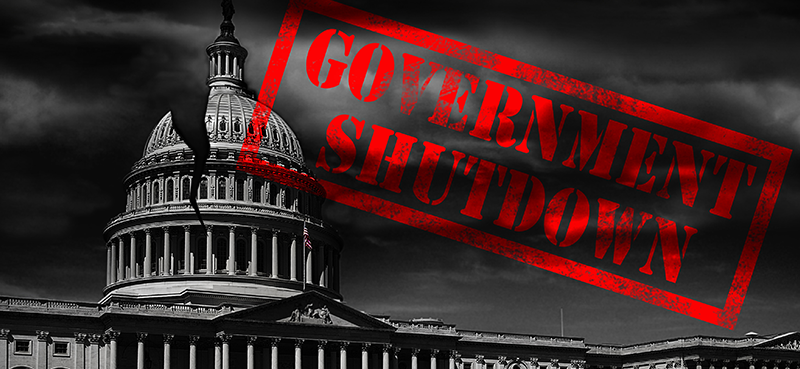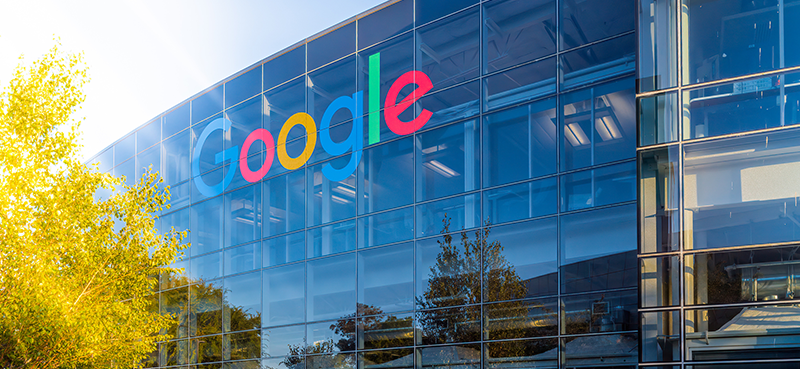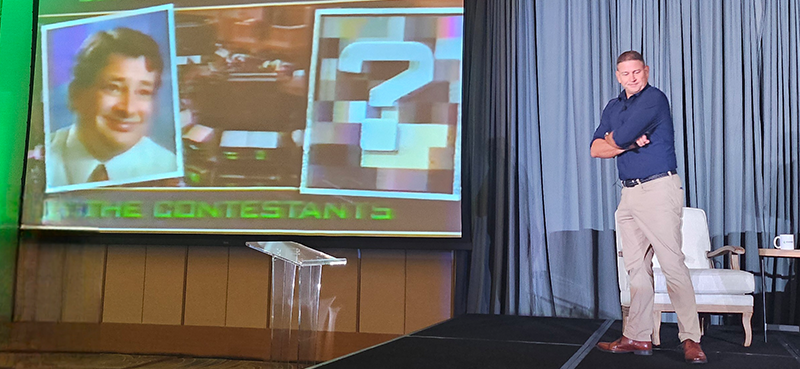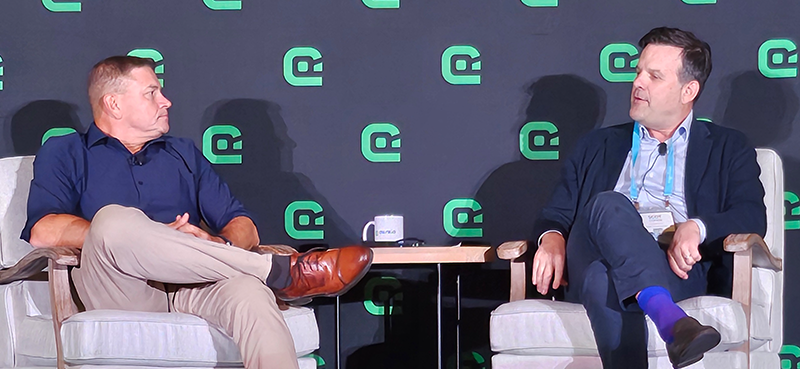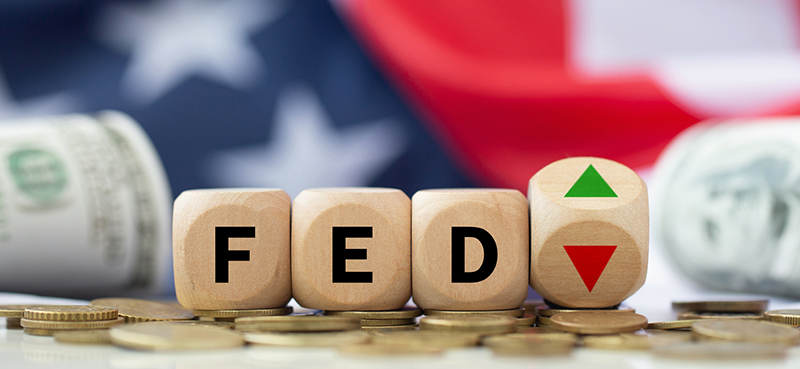Frank Curzio
A make-or-break moment for stocks
By the time you see this, the Fed will have announced its latest interest rate increase… and Fed Chair Jerome Powell will have held his press conference.
Daniel and I discuss what to expect from the market following Powell’s speech… the Fed’s big blind spot when it comes to inflation data… and why this meeting is a make-or-break moment for stocks.
Next, Daniel highlights the impressive results from AutoZone (AZO)—and why good news for AZO is bad news for the economy.
And I explain why banks—which typically benefit from higher rates—are suffering from the Fed’s actions.
Wall Street Unplugged | 949
A make-or-break moment for stocks
Announcer: Wall Street Unplugged looks beyond the regular headlines heard on mainstream financial media to bring you unscripted interviews and breaking commentary direct from Wall Street right to you on main street.
Frank Curzio: What’s going on out there? It’s Wednesday, September 21st. I’m Frank Curzio, host of the Wall Street Unplugged podcast, where I break down the headlines and tell you what’s really moving these markets. So, it’s Wednesday, Daniel Creech day, but it’s really Daniel Creech week because he was on yesterday, and I’m pushing Amir’s interview to next week since we have a big Fed meeting coming up. By the time you listen to this, you are going to know what the Fed did. We’re doing it before. We like to guess on things, right, Daniel, and see what’s going to happen, and we look like idiots when people listen to this later and be like, “What are you talking about?”
Daniel Creech: That’s right. It’s our version of shaking the ’08 ball.
Frank Curzio: Just a couple things. Again, the Fed is the biggest story here. And there’s two other news stories that say, Biden said the COVID pandemic is over. What do you think about that, Daniel?
Daniel Creech: I’m happy to hear that, that’s great. I read… I believe it was Bloomberg this morning that a major city, I think, did away with the private mandate for the vaccine and things.
Frank Curzio: Oh, I don’t even know.
Daniel Creech: I think that came across Bloomberg this morning. Anyway, that was a good follow-up. That was on 60 Minutes, I believe when he said that, declaring it’s over. I think that’s good for everything. I think that’s good for economies, and people, and freedom, and all that good stuff. I was delighted to hear that, my friend.
Frank Curzio: The 60 minutes interview, he was pretty happy where inflation was, which I thought it was crazy.
Daniel Creech: I saw a few highlights of that. I have not listened to it yet; I do plan on it. Or, I’d rather read the transcripts, I like reading that.
Frank Curzio: I hate this by all politicians on both sides. If you really want to win people over, which again, our system used to be set up where we hire someone to represent our ideas, where we’re not doing that anymore. These politicians have their own ideas, they don’t care about the people. However, they still get voted in for somehow which is amazing to me. How about a politician just coming out and say, “Hey, you know what? Inflation’s a lot higher. We didn’t expect this, but we’re dealing with it. We’re seeing a couple…” There’s so many things that you could say instead of just saying, “Hey, everything is good,” and slapping people in the face, right? I don’t know. I don’t know who the PR is but it’s just not working. And this is across the board, if you’re looking at it. I don’t care what side you’re on.
Frank Curzio: Just identify. Be there with the people and say, “Okay, I know this is going on, this is what we’re dealing with it.” You could highlight some positives, but just to say, “We’re okay,” is crazy right here because it’s a lot different from what Powell’s about to say, right? He’s going to say that inflation’s no way near over. I mean, that’s what we’re expecting, right? And I didn’t want to confuse anyone because you guys know I’m pretty bearish on the markets right now. I’m exceptionally bearish on the markets if the Fed is going to take this, where I think they’re going to take it to, what they said in Jackson Hole. That makes me nervous that you’re going to go to 4% and keep them there through 2023. I think you’re going to see probably four out of five quarters of negative GDP growth, and that’s starting with two quarters ago with those two negatives, and this one could be negative. They’re expecting 0.3% growth. But I think the next two quarters could be a disaster if we’re really going to go that high.
Frank Curzio: I think we’re in the camp here, Daniel, where pivot… What does pivot mean? It means okay, it’s either all or none, right? Like we said yesterday, where the Fed, are they going to say, “We’re going to start easing.” They’re not going to say to start easing. But there’s a big difference between saying that we don’t see any signs at all that inflation’s moderating, and saying that, “You know what? We’re seeing some indicators come in, whether it’s housing or whether it’s the money supply and things like that where we’re seeing slowdowns, obvious slowdowns. The FedEx warning, retailers with high inventory levels.” You could say, “Okay, we’re going to take a wait-and-see approach. A 75-basis point hike today, and then we’re going to wait. We’re likely to hike rates going forward, but the pace of those rate, the amount of those rates, those hikes are going to be based on data.” That’s positive, right, so that should be good news. And that’s what you should be thinking instead of just closing your eyes and saying, “No matter what, we’re going to raise rates again.”
Frank Curzio: Some guy was suggesting you should go up 1.25% right now and get ahead of it. I think the Fed’s already ahead of inflation, that’s the difference. You’re ahead of it. It’s slowing down. It’s not going to magically pick up. Yes, we got a crazy CPI number. I mean, if you’re going to look at the CPI with rentals being 30% of that, good luck. If you’re based on a CPI, you’re going to be raising rates until 2023 because the rentals are not going to come down in that component. You’re going to see the CPI run pretty hot.
Frank Curzio: I mean, energy has come down tremendously and we still had a bad CPI rating. Just to show you how much that rental incomes accounts for that, and food as well. What are your thoughts here? The Fed’s about to make this announcement. I believe this is a massive announcement to the point where it’s going to determine whether you should start allocating money. It’s the reason why I didn’t recommend any stocks in one of my newsletters, the last newsletter. I said, “I need to hold up. Don’t sell everything. A low-cost rate. I just want to see what the Fed’s actually are going to come out and say, it’s a big deal.” Depending on this meeting, I think is going to determine whether we’re going to see a nice pop and hit a bottom in the markets, or if we’re going to see a 15% plus correction in October. That’s the difference in this meeting, that’s how significant it is. That’s all I’m saying.
Daniel Creech: I like that. You got some good calls. Hopefully, we rally 1000 points today so you look good all across.
Frank Curzio: I mean, what could the Fed possibly say, Daniel, that they haven’t? On the negative, what could they possibly do that… What are they going to say that’s more negative than what’s expected?
Daniel Creech: Right.
Frank Curzio: Let me ask you that question. What could they possibly say? Even if they go 1%, what are they going to say? The whole entire market is anticipating that you’re going to say, “We see no signs of inflation, and we’re going to continue to raise it four and a quarter.” I mean, the expectations are four and a quarter, 4.3%, right? 4.35%. That’s the expectations for the next year. I don’t see them going higher than that so a lot of that’s pricing. You’re probably seeing why the market’s up a little bit right now, and let’s see. Any hit of good news, you have a shot of this market really taking off. But overall, they’re raising rates. You’re not going to see the equity market go up in the face of raising rates. We don’t see that almost ever.
Daniel Creech: I agree. I don’t think that they’re going to say anything more negative today. I believe the biggest risk is if they continue to be as negative as they’ve been. We talked about yesterday in a few quotes, and some of the Fed members were happy to see stocks move lower and things. I actually expect that. So, Frank, we can have a fun beer bet. Here’s my thinking. If you continue with your hawkish tone and you hike 75 today, and then you talk about getting to 4% by the end of the year, like we talked about yesterday… While I think that’s going to be very painful, don’t get me wrong, I believe they’re trying… They need to do that in the sense of, once they start cutting, and they’re going to have to… We hate to just skip forward through all this because, in reality, you can’t.
Daniel Creech: If we fast forward ahead of this movie and decide what direction we’re going, once you pivot … Or, to your point, say, “Hey, we’re going to really pause, and we’re going to look at data, and we’re going to be more data-driven, and we’re not just going to have our mind made up” it’s going to be a hell of a lot more beneficial for the markets to be able to cut from 4%… Let’s just exaggerate and say you go from 4% to zero, from say 2.5 or 3% back to zero.
Daniel Creech: I’m not saying that’s right or wrong, I just think that for whatever reason, we like round numbers. You always see the hats with Dow 20,000, Dow 30,000, all that stuff. Maybe they’re just sitting around their room drinking and saying, “Hey, 4%’s a nice round number, let’s get to that.” We talk a lot about this with investor sentiment, and psychology, and what are people thinking about, and the uncertainty. I do think it’s a big deal. It’ll be a lot more bullish to be able to cut from a higher rate and know that you have a lot more room to go down and boost markets. What do you say to that?
Frank Curzio: I say that it’s very dangerous right now because rate hikes… You can’t raise rates and take them back that quickly. Remember, it takes six to nine months for this stuff to flow through the system. If you’re going to significantly raise rates, you’re going to destroy the global markets, but they’re getting destroyed right now. We’re not talking about that, right? We’re not talking about the global markets absolutely getting annihilated right now and rates going up. They’re in scramble mode to the point where China is expected… President Xi’s expected to say, “All right, no more zero-COVID policy,” which is about time. You should have a zero policy, and they should know more about COVID than anybody. And then you have Japan doing things to prop up their currency. You see Europe is still a disaster right now. But also with China, they’re looking to lower their lending rates to try to stimulate the economy. Things are really, really bad overseas with rates where they are right now. And again, the last 75 basis point hike is not even close to being factored into the markets.
Frank Curzio: I heard a stat yesterday that we’ve never seen the bottom of a market happen when they’re raising rates until they stop raising rates, right? We’ve never hit a bottom. And the guy went back all through history of all these rate hikes and tightening cycles, right, and we’ve never seen stocks… Stocks finally bottom when you stop raising rates, and then okay, then you’ll find the bottom, and people will come in. But there’s still the uncertainty, a lot of uncertainty, by him coming out and saying, “We’re going to continue to fight inflation.” What you’re saying is, we have no idea where inflation is still going, and that creates uncertainty. Right now, you have inflation under control. It’s not wildly out of control like I said yesterday, where it’s 5% last year you were like, “There’s no…” The Fed’s primary goal, the number one goal, is fighting inflation, right? We were at 5% last year, they didn’t do anything. It says it’s going to be transitory. So now, they’re behind the curve.
Frank Curzio: Now you’re seeing a lot of different industries, you’ve seen a lot of things let up. And the most important thing, which I think that we really don’t talk about enough, is the companies, right Daniel? You got to listen to these corporations and the companies and what they’re saying. And it’s not just FedEx, it’s not just Ford yesterday, it’s not just GE. Almost all the chemical companies have warned. Seen a slow-down business. We’re seeing it from a lot of retailers as well where they’re adjusting their inventories and stuff. And they’re meeting numbers, and you might say, “Well, they’re number, they’re beating estimates. They lowered significantly.” Look at the earnings now, they’re being lowered much, much more into next quarter considerably. They’re already down 4% year-over-year, X energy. And in this year, energy is supposed to account for… They’re supposed to go up in energy, and I think it’s… What is it, Daniel, three, 4% of the whole S&P now in terms… It used to be really, really low.
Daniel Creech: The waiting.
Frank Curzio: The waiting. So now, it’s-
Daniel Creech: To five, but it’s more in the fours versus it was two in change.
Frank Curzio: All right. Okay, so now, it’s in the fours. This year, they’re expecting earnings growth of a 100%, but yet, almost every other industry is going to see negative revisions, including technology where earnings are expected to decline. In technology with the S&P 500, Daniel, 12%, those are the estimates. They continue to come down. But margin expectations are also crashing the S&P 500 which is good. It means that, that’s a perfect sign that inflation is not going to continue from here, right, because they can’t pass on the higher cost to consumers, that’s why margins are getting lower.
Frank Curzio: One of the catalysts for the market was buybacks. They’re like okay, well, these companies have pretty strong balance sheets, and they’re going to be buying back their stock, and their stocks are down 20, 25%. You know something? That was a very big catalyst. That was a very big catalyst for the last three months, four months. I hear that a lot. A lot of these guys announce buybacks just for the record. You could announce a buyback and say, “We’re going to buy back $3 billion worth of our stock, or 25% of the float,” and not do it. You could announce it and not do it. It’s up to you whether you want to do it or not, it’s not like you have to do it. You just make an announcement and stocks go up. Usually, it’s at their discretion. Not usually, it’s at their discretion, but they’re buying it at certain times.
Frank Curzio: If you’re looking at buybacks right now, right, and this is after… There’s a quiet period, and now, the quiet period’s over, and all of them reported earnings, they’re not buying back their stocks at this level. Okay. Which is surprising. Again, there’s supposed to be a big catalyst, we were expecting these buybacks. For you not doing those buybacks and taking that cash flow means that you’re worried about your business. We don’t need to buy back our stock now. One, it says that you don’t think your stock is cheap. And even though you fell 20, 25% already from their highs, most of these stocks especially technology, but it’s also saying that maybe our balance sheet isn’t that strong, and we need to just hunker down right now and don’t do anything stupid with the cash on our balance sheet in case this lasts through 2023.
Frank Curzio: Because I could tell you, if rates, which right now, they’re predicted to be above 4% for the entire 2023, erase that year. If you think stocks are under pressure now, I mean, erase that year. I mean, stocks aren’t going go to go higher. This is where we’re all over the place. I said yesterday, conference board, they’re expecting massive growth for the second half of 2023. But remember this story, Daniel, remember this nine months ago? All these companies said, “We’re going to see incredible massive growth the second half this year.” Now, that’s gone. All the auto companies, all these companies, they’re seeing orders disappear at a fast rate.
Frank Curzio: If you’re looking at companies and backlogs, the other companies have massive backlogs in the chip sector. I try to do research where I can get all backlogs and the biggest backlogs, you have to go company by company. The chip companies, I wouldn’t worry too much about, backlogs get funded by the government in a defense sector. Just different industrials, if you’re looking at their backlog, those backlogs you should discount by at least 30 to 40% right now because that’s… Business that’s expected to come, but it’s not 100% booked, and they count that in their backlog. And you’re going to see a lot of those backlogs and a lot of business that start getting canceled and people dialing back. It’s evident just with the buybacks.
Frank Curzio: The buybacks are supposed to be huge right now, it’s supposed to be massive right now. And for companies not to be buying back their stock at this level, it’s telling the world that hey, you know what? Let’s make sure our balance sheet is strong, let’s make sure we have enough cash flow coming in. Let’s just relax right now because we are confused too, and we don’t know what the Fed’s going to do. And if FedEx didn’t come out and warn and say, “Listen, our ends going to be down 15, 20%.” They’ve removed their guidance because they have no clue. This is a company that has one of the best supply chains. The finger on the pulse of everything that’s going on. AI systems all over this for 10, 15 years for these guys, for most of these large companies, and they’re removing their guidance because they have no idea what’s going to happen.
Frank Curzio: And that uncertainty is going to filter through the markets, but the Fed could change that if they’re more direct. But if they say, “We see no signs of inflation slowing,” like what’s expected later, and they say, “We’re going to continue to raise rates,” you’re leaving the door open and that creates uncertainty, and the market’s not going to do well under those conditions. They’re not going to do well under those conditions. That’s what worries me.
Daniel Creech: That’s right. The path of least resistance is lower until the Fed steers the ship in the other direction, for lack of a better word or phrase. On the buybacks, real quick. What goes into effect next year on buybacks, Frank, on excess buybacks?
Frank Curzio: It’s higher taxes.
Daniel Creech: A little bit of taxes. I believe it’s 1.5%, it only applies to the biggest corporations. The takeaway there is not what they’re telling you in the sense of 1.5%, the details don’t matter right now, it’s bad, in general, in my opinion. However, what investors should think about and factor into decisions over the next several years is, once that dam breaks, what’s keeping it from 1.5% to two to three to four to five over time? That’s just another worry, we don’t need to dive into that. To your point about pricing power earnings coming down… It’s fighting the Fed to pick stocks right now and buy stocks right now in the short-term, we get that. However, that doesn’t mean that you should not look for opportunities and at least act because there’s still a lot of money to be made or even hide out.
Daniel Creech: I say all this because did you see who reported earnings earlier this week? AutoZone. And AutoZone is one of my favorite companies ever because it is well run. And speaking of buybacks, it’s built into their business plan to buy back their shares. But I want to highlight this, Frank. Let’s just call the S&P down 18% year-to-date, what do you think AutoZone’s stock is down or up this year, year-to-date?
Frank Curzio: Year-to-date, I’d say down 10%.
Daniel Creech: It’s flat. In the words of Joe Biden, “When we had 0% inflation last year,” sarcasm, “Or last month.” 0% right now. If you bought AutoZone, and the market’s tanking, and you’re down you’re flat. You’re happier than hell. In the world we live in, in investing, that’s a win, that’s a big deal. So, a couple of highlights here. The CEO, Chief Executive, Bill Rhodes, he did say that discretionary products, obviously, soften as gasoline prices surged earlier in the quarter. When gas prices have been falling for, I don’t know how many weeks now, which is a positive, they did see some uptick in more discretionary spending. However, they raised revenue 9% from the year earlier, they posted sales of 35 billion, excuse me. That’s up 9% year-over-year. They talked about how they have pricing power. They raise prices to offset transportation, labor, and, raw material costs, boosting sales by 11% in the quarter.
Daniel Creech: Obviously, this stock has great management. I don’t know if anybody’s ever been in AutoZone’s. I like them. Nothing against O’Reilly. They have great customer service. I’ve talked about them in the past. I’m an idiot because every time they drop, I think, oh, I’ll get it at a cheaper price, and I have zero, and I’ve been talking about it for years. So, you just ought to buy this and forget it, and thank me at some point in the future. They have a lot of tailwinds because, Frank, as supply chains continue to disrupt auto prices… I know used cars have come down, in general, but prices are still elevated for new and used prices that keeps folks in their existing cars to repair and do maintenance on. And as people are forced to return to work… I don’t know if you’ve looked at any of those fun headlines between Wall Street and other big corporations telling people to get back to work, the increased driving back to the office, wearing tear on vehicles, and things of that nature.
Daniel Creech: You don’t have a stock like this. I’m not going to go on a big EV rant here and explain why they need to be forced versus a free economy. I’m simply going to say, just like beautiful Martha’s Vineyard real estate or coastal real estate, if EVs were taking over the world, or something like that was happening, AutoZone would not be running on great cylinders trading near 52-week high or near it, and that’s what you want to take away from this. It’s not all negative. These companies that have pricing power that are going to benefit from the unfolding of the economies and what’s going on big picture, AutoZone is a great stock like that. I wanted to tout that because that was a very good quarter. I mean, and they’re going against tough comps. Their comparisons year-over-year are tough.
Frank Curzio: They are tough.
Daniel Creech: That’s amazing.
Frank Curzio: And I can tell you, what is that an indication of though, Daniel? If you’re telling me that AutoZone, which is-
Daniel Creech: A struggling economy.
Frank Curzio: It’s a struggling economy. We’re in an industry with cars where everybody buys new cars every two, three years, which you really don’t have to, you have to buy the iPhones and stuff like that. Again, I explained this a couple weeks ago, I have an iPhone store. If you have a version that’s pretty much of the iPhone that’s three years, it’s just a matter of time before they shut off everything on you on purpose, right? And Apple actually admitted that and got sued for that or whatever, they had to pay fines. It’s just none of the new apps are going to work, they’re not going to be compatible, so it forced you to upgrade. You’re not forced to upgrade your car. It’s just like hey, I want a new car and these new technologies, especially over the past two years. Because what have we seen over the past few years? I mean, GPS systems are standard now in every single car. The bells and whistles are much nicer and people really like them, right, so it’s cool. If it’s hands-free driving or whatever.
Frank Curzio: If you’re looking at the past two to three years, there hasn’t been huge upgrades in terms of technology. I’m speaking from experience. One of the cars that I had, I wanted to get the same car three years later, and it’s the exact model. I got in it and I had no idea that that model was the 2021, I think, or 2022 it was, compared to the 2019 model. And 2019 was the first time that they designed this thing, this is a Lincoln Navigator. That happens with cars, but still, they have different upgrades. The same technology, the same everything all around, and it was just… What I’m saying is that AutoZone tells me that for new car owners… For the Fords and those companies, and even GMs… I like GM here; it’s come down considerably. I think they’re doing better with EVs, and they don’t have to pay $50 billion over the next five years, an R&D like Ford’s got to spend. And you’re seeing that bite them in the ass less the last quarter.
Frank Curzio: It might be telling you that people are going to push out these new car sales, and even EV sales, and say, “Okay, you know what? Let me just fix my car, let me just drive this around for a couple of years.” And that’s the economy we’re in right now. I mean, I see it. I see it throughout everybody that I talk to. I see it throughout this podcast, which goes out to 250… We get 250,000 downloads a month. I get lots of emails coming in. People are definitely shrinking and businesses that I’m seeing, whether it’s in housing, and it’s all these businesses.
Frank Curzio: Two months ago, they’re like, “Frank, I’m still seeing business boom.” The last month a lot of people have been just telling me, “Listen, we’ve seen sales come down. In some areas it’s working, but we’re actually seeing a big difference compared to the month before.” And that’s what happens when you raise rates so fast because you’re seeing on a dime things switch. People turn off. We’re not talking about slowing down inflation or slowing down the economy, we’re talking about right now with the pace of your rates, you’re shutting off the economy. You’re going to shut off the entire economy.
Frank Curzio: And that’s what’s going to happen if you raise too fast. It’s not going to be oh, we need to do this to combat inflation, you’re doing it, you’ve done it, right? You have inflation under control. It went up a little bit last month with the CPI. Again, if you look at a lot of different indicators, it hasn’t gone up. It’s going to slowly go down where it’s 6.5% mortgage rates. You’re taking the whole housing industry out of it. Again, we had weak housing statistics again today showing that home prices are coming down.
Frank Curzio: But if you’re raising too fast, this is what happens. You completely shut off the economy and people stop spending all the same time, and that’s why you’re seeing these industry by industry. Whether it’s retailers, it’s home builders, it’s a chip sector, now it’s industrials, now it’s FedEx immediately. They’re like, “Things were great a quarter ago,” and now they’re like, “Holy shit, we lowered earnings by 30% because everybody just stopped spending and we’re surprised.” There’s no surprise because these things hit you like a pound of bricks right in the face. It’s not like, oh, okay, gradually we want to control… If you’re going to do it this fast, and people are calling for a 1.2 quarter rate hike and get ahead of it, you’re already ahead of it, you finally caught up to it. Now you might have to go a little bit higher, and we understand that, but did you really just blindly say, “We’re going to raise rates like crazy going forward?” It seems like they’re going to do that no matter what, without looking at the data, and you have to be looking at the data.
Frank Curzio: That’s what the Fed should establish at this meeting, Daniel. They have to come out and say, “We’re aware of the data, and some of it, you could say a lot of it, is showing deflationary signs. However, food is still high, rent is still high, we’re still seeing inflation so we’re going to continue it.” But they need to address that they’re seeing it. Because if you’re not addressing that you’re not seeing any of those things, that’s what scales the hell on me because that means you’re going to significantly raise rates higher from here, and I don’t think the market … The market’s definitely not pricing that in. Even with the two-year topping 4% for the first time since 2007, it’s not pricing in 4% plus rates for the entire year next year. And if you are pricing that in, you have no idea that’s going to do the businesses.
Frank Curzio: Because even the banking sector’s a good indication, right? You should see massive, massive, massive profits because higher rates are great for them, right, so it’s just that edge margin goes up tremendously. And when we had zero rates, they found ways to fee you to death. Everything was a fee, fee, fee, fee, fee, right? You had a market where M&A was strong, your SPACs were strong, they get involved in all this investment banking stuff and things were great. When you raise by this much, the banks should be doing great, however, you completely turned off the IPL market, the M&A market. It’s almost completely turned off right now. You’re going to see some M&As, but not a lot.
Frank Curzio: You’re going to see really a lot of these technology companies start aggressively buying other companies right now in this market, where they’re seeing earnings decline sharply, they’re supposed to decline 12% year-over-year. So, the banks are a good indication that you’re doing this too fast because they should see huge growth and are not. They’re actually going to see earnings year-over-year decline because every other facet of the business has been completely shut off, and that’s what scares the hell out of me.
Frank Curzio: You don’t have to completely shut off the economy and shut off everything, okay? Little by little, this should be a gradual approach. But these 75 basis point hikes, people are talking about them on NCBC like this is normal. Oh, we should go 1%. This is perfectly normal without understanding the true ramifications of this because it’s going to be a freaking disaster, and the Fed could actually avoid it just by the way they talk. So, let’s see what they say today, it’s going to determine what we do in our portfolios because they’re like balls to the wall, you can’t own equities. If they’re really serious about they said in Jackson Hole with all these indicators showing that you’re seeing deflationary trends, more deflationary trends that we’ve seen in a very, very long time, and you’re not even acknowledging them, you can’t really own equities over the next few months until the Fed decides to say, “Okay, all right, we’re almost done raising rates.” And we have to be near there, especially with this 75-basis point hike, but we’ll see.
Daniel Creech: The Q&A today is going to be one for the ages. Does CNBC have a countdown clock on yet?
Frank Curzio: No.
Daniel Creech: I know they love the countdown clocks, and markets, and turmoil, and all that.
Frank Curzio: They have the banks. They actually have Biden on right now.
Daniel Creech: Oh, yeah, he’s at the U… Is it G7 or UN?
Frank Curzio: The UN. He’s talking at the UN. But they have the banking sector just… They’re testifying. I don’t know why that that’s a big deal to me.
Daniel Creech: No, that’s why it’s on your mind, they got the bank… Oh, it was keeping the giant banks accountable or something. Whatever that hearing is.
Frank Curzio: I mean, it’s so funny the whole banking sector, it’s almost like the government sets up and they talk to all CEOs and go, “Okay, look, we’re going to find you this much on this date, and we’re just going to say something about…” I think that some of them are still getting fined for the housing crisis. And Jamie Dimon was, I think, a year or two ago, he’s like, “All right, enough of this bullshit. Okay, enough.” I mean, it’s almost like how much money do you want? Here you go, leave us alone type of thing, right? It’s just so funny the way that it’s all smoke and mirrors here. I guess there’s nothing to talk about because it’s very difficult to either recommend stocks or not recommend stocks.
Frank Curzio: I said that I wouldn’t be surprised if we go up 1,000 points here because there’s so much negativity. If the Fed just comes out and says something a little positive it’s fine. If you’re looking from a risk-reward perspective, the market going up sharply from here, and just the risk you’re going to take because I don’t know what the Fed’s going to say that we don’t already know on the negative side. I just think it’s a good risk or trade. But still, you’re raising rates considerably, and we don’t see markets bottom when you’re raising rates, we just don’t see that until that cycle’s over and the Fed’s saying, “Listen, that cycle’s not even close to being over.” We’ll see.
Daniel Creech: I mean, history is a good roadmap to look back on. Again, it doesn’t guarantee future performance and or direction, but you can’t ignore that. And another scary data point I believe I read was, in order to really kill inflation, you got to get the Fed funds rate above inflation. Well, that’s not going to happen this cycle because you can’t … I mean, you could, but you talk about shutting down the economy. How about how it comes out in raises?
Frank Curzio: And inflation’s not expected to go below what 5%? And I think maybe 5% by the end of next year, maybe to 4%. It’s going to come down but it’s going to down slowly, right? But if you want it down sharply this is what you do. But you’re risking shutting the global economy off, shutting it off. Not just, hey, we want to slow this down, which is normally for the Fed and the way they talk. A gradual slow down, no surprises. They just come out and say, “We’re going to raise rates.” I mean, it’s just uncertainty because you really don’t know. And that’s why we’re having so many of these conversations. And that’s a conversation on Fast Money, and all these shows is, how much are they going to raise by? They’re not going to pivot. We shouldn’t be talking about this; we should know exactly what the Fed is doing. When you know exactly what the Fed is doing, that’s how they translate it since the 2008 crisis of hey, this is what we’re going to be doing coming up, it’s resulted where you could invest accordingly.
Frank Curzio: You really don’t know because the Fed says what they said in Jackson Hole, in saying, “We see no signs of inflation slowing.” Based on one indicator, CPI, which you have to stop looking at that. Because if you’re looking at the CPI, I’m telling you, you’re going to go over 5% rates because that thing is not going to come down when rent is 30% of it. And you’re just not going to see that come down fast. And that scares the hell out of me because you’re going to see everything else absolutely collapse, and we’re seeing it. We’re seeing it in lumber, we’re seeing it in copper, we’re seeing it in cotton. We covered yesterday, seeing the housing market being shut off. You’re seeing it in a lot of different industries so good luck to that. On another note, I will say this. I was surprised. This is really a surprise for my Canadian friends. They’re going to lift vaccine requirements for people entering the country for Canada.
Daniel Creech: I saw you were trying to break the internet with a tweet there about … Where you had to actually say it was sarcasm. It’s not near as funny when you have to say it’s sarcasm.
Frank Curzio: But you have to. And I got cooked on Twitter. I said, “Now DeSantis has someplace else to send everyone coming up the southern border.” I said, “I’m being sarcastic for the crazies out there.”
Daniel Creech: A better humor is beauty. Beauty’s in the eye of the beholder. The funniest thing was the Martha Vineyard thing. They sent 50 or 60 immigrants, and somebody on Martha’s Vineyard, they were doing different… Asking residents and things and they said, “Well, we don’t have the room to house 50 more people.” Almost every city or town could probably take on 50. I just opened up a joke.
Frank Curzio: Just open up a picture of one of Obama’s parties-
Daniel Creech: I don’t know whose house it was.
Frank Curzio: And he has this massive tent that fits 300 people.
Daniel Creech: Exactly. It is sad when politics are being played, but hell, we’re being played in politics as well as ponds. Something to tease for tomorrow. I want to stay on this energy conversation because everything that’s going on between Russia and Ukraine. Putin gave a speech and was more aggressive than… More hawkish than dovish, and calling in troops and beefing that up. There’s elections over there going on in Ukraine. Then you have more sanctions and, lack of a better term, silliness that’s going to go into effect later on over the next coming months. If you try to price… Or, excuse me, cap the price of oil, different things have been tossed out there in the European Union and things like that.
Daniel Creech: My point to all this is that we have a lot of articles and things, Frank, to talk about how we think this is going to unfold over the next couple months. And if they continue on these sanctions and this path, it’s going to disrupt not only the oil and gas markets, but then, it’s going to ripple through the shipping industries. We want to take and look an advantage of that.
Daniel Creech: We did well in Nordic American tankers, I believe in CVO, a good while ago on a quick trade. I need to get it right. So, we need to timestamp this because that opportunity is coming up again, if not right now, where you can start adding. Again, I’m looking a few months out into December, I believe these… We can talk about this more tomorrow. Obviously, the elephant in the room is the Fed and the Q&A today. However, very little of what he says today, either way, is going to change the energy markets going forward in the near-term. That’s a positive for investors that you need to not ignore.
Frank Curzio: And guys, I want to end with this. Listen, it gives me no pleasure, and I’m sure, Daniel, no pleasure talking about economics here, right, but that’s the story. We like to talk about different ideas.
Daniel Creech: Hey, we love talking about economics.
Frank Curzio: I try to make that exciting because to me it is exciting, I just hate the way they teach you with bell curves and all the bullshit and everything when it’s… Just the emails that you get in, and seeing who’s buying cars next to you, and who’s fixing up their houses, and how much milk is, it really factors in. That’s why for you, as an individual investor, have your pulse on the market. You knew there was inflation for the last three years, right, you knew it, but the Fed didn’t, and they’re supposed to be the smartest people in the room, right, because they control… They’re the most powerful organization in the world that could destroy the global economy.
Frank Curzio: You knew a lot more than them because you’re paying your bills, you’re going out there, you’re seeing things, right? So, use that to your advantage because you’re going to see things before these guys read them in lagging indicators which are sometimes three, six, nine months old, and it allows you to position accordingly. I try to make economics exciting, and maybe it’s not, but this is something that we have to talk about. Again, based on this decision by the Fed, it’s going to result and we’re going to see a crash in the markets in October, or if it’s time to really start putting more money to work. Going into the elections, I can’t see the market staying down or being total collapsed into this important election season for midterm elections. They have to find a way because that’s the number one indicator. That is the number one indicator everybody looks at, right, they vote with their wallets. And if you’re really going to crash this economy, everyone’s just going to say, “Okay, we’re going to look for change, we don’t care.”
Frank Curzio: It’s going to be interesting seeing the political side what they do, what other countries are going to do. We have to get the Fed to just acknowledge that hey, we’re seeing some of the things, that what we did so far is working but we need to do more work. That’s a positive sign. But you saying, “We’re not seeing anything,” like you said in Jackson Hole, and this was only two, three weeks ago. We’re not seeing any signs of inflation slowing, that’s very, very dangerous. That means rates are going considerably higher, we’re going well past 4%, and lookout because it’s very hard to own equities in that type of market.
Frank Curzio: But the silver lining, right, Daniel, is that when these stocks come down, you’re going to see a lot overshoot, and it’s going to be a fantastic opportunity. Where you don’t get these opportunities, you get them once a decade sometimes, every 20, 30 years. You got it during COVID, you got it in 2008 where you see stocks absolutely collapse and nobody wants them. And people with two, three, five-year outlooks, it’s usually a good time to come in and get stuff, pennies on the dollar. That’s what we’re going to look forward to, and I think you’re going to get that opportunity at the end of October if the Fed says exactly what they’re going to do later on today and raise rates above 4%. Stay on the sidelines a little bit and you’re going to have great opportunities probably within a couple of months because there’s going to be a massive sell-off.
Frank Curzio: And it’s not even coming from me, you’re seeing it from large hedge funds now, and the smartest guys and billionaires all saying the same thing. If we’re going above 4%, the equity market, it can’t go up, it’s almost impossible for it to go up. There’s nothing you could do, there’s nothing you could report. It’s like the gold industry because a lot of you are into gold. And Daniel, I’m sure you agree with this. But gold was so horrible from 2012 to 2017. And in 2017, it went up a little bit, and it’s still bad.
Frank Curzio: But that period, it didn’t matter if you announced good news. Good news, the stock went up and that was the reason for everybody to dump into it. And that’s the market we’re going to be in as long as you’re raising rates. Where companies that do report good news and things are good, they’re going to use it. That volatility is a selling opportunity where they’re going to be selling the dips instead of the opposite when interest rates were zero for 10 years, basically, 10, 12 years, where it was buy the dip mentality. Now, it’s going to be selling the dips.
Frank Curzio: So, when you’re seeing these stocks go higher and higher, you’re going to continue to see people sell into it as long as they’re raising interest rates, and that’s scary. Hopefully, I’m wrong on this. It’s something that I really, really hope I’m wrong on. But I just wanted the Fed’s to acknowledge that hey, we’re seeing some signs of what we’re doing is actually working, and we’re going to accordingly, we’ll probably raise rates to the end of the year, but we’ll see. Based on what we see with the data, that’s going to determine how much we raise rates by. That’s going to be a positive sign and the market would take that very, very well, and allow us to just jump into a couple of names, I think. Very, very important. Let’s see what happens, and we’ll be here tomorrow. Any final words?
Daniel Creech: Final words for me is, we-
Frank Curzio: Watch the Presidents Cup.
Daniel Creech: We are held hostage here. No kidding. We will get through this. It might be painful through the end of the year or October, whenever. And we’ll talk about more of this. Even if markets go sideways or down over a longer period of time, that doesn’t mean that everything’s going to go down, we’ll find winners and things like that. Tomorrow, I am excited, Frank, because once we get past this little thing with the Fed, and then we have to wait on them for their next meeting, we can talk about stuff that’s actually entertaining like the Presidents Cup, PGA, LIV, and all that. This isn’t the platform yet, so I’ll refrain and can’t wait.
Frank Curzio: And the Eagles. The Eagles look pretty good, and I’m very happy. We’ll see.
Daniel Creech: Oh, look at the time.
Frank Curzio: Look at the time, we got to get going. So guys, we just want to put this together for you. Again, this is before. By the time you get this, the Fed’s already going to announce what they announce. We’ll see what happens. We’ll break that down tomorrow. Again, I didn’t want to have anyone on. I’m going to have Amir on to talk about uranium, but nothing’s going to matter if the Fed just destroys this market here, so I’m going to push that until next week. And Amir’s finally coming on. I know a lot of you have uranium, my own uranium, and I think it’s an exciting industry. That’s one of the industries that I do like regardless of what the Fed’s going to do as more and more people push into nuclear energy, which makes sense, especially from Amir’s point of view. They learned that the hard way. All right, guys, so that’s it for us. Daniel, thanks so much for coming in.
Daniel Creech: Thank you, cheers.
Frank Curzio: All right, guys. And questions, comments, frank@curzioresearch.com. Daniel, your email?
Daniel Creech: daniel@curzioresearch.com.
Frank Curzio: All right, guys. We really appreciate the support. And I’ll see you tomorrow. Take care.
Announcer: Wall Street Unplugged is produced by Curzio Research, one of the most respected financial media companies in the industry. The information presented on Wall Street Unplugged is the opinion of its host and guests. You should not base your investment decision solely on this broadcast. Remember, it’s your money and your responsibility.
Editor’s note:
Genia has closed out 13 winners during this year’s devastating bear market… many for gains of 100%+. Her latest recommendation is a unique way to profit BIG from the 2008-level housing crisis she sees coming at us fast.
Receive her full writeup AND a free year of service when you join Moneyflow Trader today.




